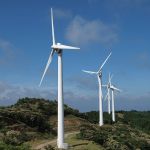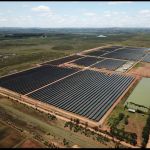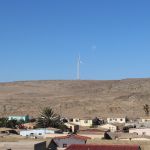Our carbon reduction projects have been carefully selected for the superyacht community and our maritime clientele. The projects are primarily located in coastal or island settings and play a pivotal role in safeguarding the global environment and fostering sustainable development within the local communities of nations requiring external financial assistance.
The majority of the carbon emission reduction projects we endorse fall under the category of Renewable Energy Projects. These encompass power plants generating energy through solar, wind, hydro, landfill gas, or biomass. We also prioritise Marine-Based Projects, such as our support for mangrove restoration/protection projects. Mangrove forests act as powerful carbon sinks, significantly outperforming terrestrial forests in capturing and storing atmospheric carbon dioxide.
Additionally, the energy efficient cookstove projects bring significant benefits to the lives of the marginalised communities that are using the stoves.
Below is a list of the current projects we have selected for our clients (subject to credit availability).
♦ Premium and Costal Marine projects are in limited supply. Please specify if you would like us to use any of these projects for your offset and we will quote accordingly.
Project Locations
Our selected projects span the globe. Greenhouse gases disperse globally in the atmosphere, making the location of emissions reduction irrelevant from a climate change perspective—the positive effect remains the same. Given the intrinsic characteristics of the carbon offsetting mechanism, virtually all of our carbon reduction initiatives are strategically situated in developing countries.
Project Quality
To ensure the highest standards, our carbon offset mechanism mandates that all carbon credits be issued through internationally recognised carbon registries and verified by independent certification bodies. Clients can choose carbon credits from reputable registries such as Gold Standard, Verified Carbon Standard, UNFCCC, and Plan Vivo. The selection of these projects reflects our commitment to addressing the overarching challenges of climate change and the specific needs of communities in environmentally sensitive areas.
Project Categories
Our renewable energy projects harness the power of natural resources, including solar, wind, hydro, and geothermal, to generate clean and sustainable electric power. These innovative technologies stand out for their eco-friendly nature, as they do not emit greenhouse gases (GHGs) during the power generation process.
By opting for renewable energy sources over traditional fossil fuels, we can reduce our carbon footprint and contribute significantly to the ongoing global effort to combat climate change and mitigate environmental degradation. Embracing these projects not only ensures a cleaner and healthier planet but also signifies a crucial step towards fostering a more sustainable future for generations to come.
Our coastal marine ecosystems projects focus on conserving and regenerating vital habitats like mangroves, tidal marshes, and seagrasses. The significance of these ecosystems extends far beyond their role as biodiversity hotspots; they serve as exceptional carbon sinks, effectively absorbing more carbon dioxide from the atmosphere that is released and storing it over prolonged periods. This capacity for carbon removal is a crucial contribution to addressing the global need for sustainable climate action. The long-term importance of marine ecosystems in the battle against climate change is increasingly recognised among scientists, natural resource managers, and the general public.
As we advance our efforts in marine conservation, our ongoing projects currently centre around restoring coastal mangroves in Kenya. We are also actively seeking additional marine projects to present to our clients. However, the availability of marine carbon offset credits remains limited. This scarcity is attributed to the intricate nature of marine projects, involving complexities, time, and costs associated with the accreditation process. Although challenges persist, we anticipate expanding our offerings of ‘blue carbon’ credits soon. Stay tuned for updates on our progress as we work towards a more sustainable future.
Yacht Carbon Offset does not favour forestry schemes for a number of reasons, including difficulty of quantification and the mis-match between the time taken by trees to absorb atmospheric CO2 and that taken by the yacht to emit greenhouse gases. In some cases there may be concerns over ensuring that forests are established in perpetuity, or risks of double-counting of carbon savings through national greenhouse-gas inventories which would negate the offsetting action. However we are willing to work with our clients to identify suitable forestry projects when required.














